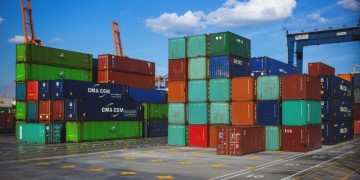As per below announcement from NZ Customs all goods over the value of $400 including freight will
be liable for the Goods & Services Tax (GST).
From 1st Dec 2019 all items imported from overseas will incur the GST of 15%
Additionally if the value of the shipment is over $1000.00 Duty can also be applied.
GST could be collected by the overseas seller or will be undertaken at the time of import into New
Zealand.
Customs advise “This change will help level the playing field for New Zealand businesses. With
the steady growth in online shopping, it will also stop a significant amount of tax revenue from
being lost.”
The below information is also available via this link.
https://www.classic.ird.govt.nz/campaigns/2018/gst-policy-update-nz-consumers.html#kiwi
NEW ZEALAND GOVERNMENT
GST: Q&As for NZ consumers and NZ businesses
What’s on this page
• General questions
• New Zealand consumers
• New Zealand GST-registered businesses
General question
How is GST charged on imported goods from now until 1 December 2019?
Customs will collect 15% GST and tariff duty on imported items, including anything bought from
overseas, where the total amount of duty and GST on the purchase equals NZ$60 or more. We
call goods that do not have GST and duties collected on them ‘low-value imported goods.’
What’s changing?
What we mean when we say ‘low-value imported goods’ is changing. Most goods bought from
overseas and individually valued at NZ$1,000 or less will be considered low value imported
goods and will have GST collected by the overseas supplier at the point of sale.
Why is the New Zealand Government making these changes?
New Zealand retailers include GST in the price of their goods, collect this GST, and pay it to the
New Zealand Inland Revenue.
Right now, GST is not collected on all goods purchased online from overseas. That’s because the
cost of collecting less than NZ$60 in GST and duties at the border is not cost effective.
Government is introducing an offshore supplier registration system that requires overseas
businesses to collect GST on low-value goods sold to New Zealand consumers at the point of
sale.
This change will help level the playing field for New Zealand businesses. With the steady growth
in online shopping, it will also stop a significant amount of tax revenue from being lost.
What do other countries do?
There are no global guidelines for collecting GST or similar taxes on low-value imported goods.
However New Zealand’s new rules are similar to the rules introduced by Australia in July 2018.
The European Union (EU) has committed to collecting Value Added Tax (VAT) on imported
goods from sellers outside the EU from 1 January 2021.
When do these changes apply?
From 1 December 2019 overseas businesses must collect GST on low-value goods supplied to
consumers in New Zealand if they meet the GST registration requirements.
This is two months later than the date originally proposed in draft legislation (1 October 2019)
to allow overseas businesses more time to make the necessary system changes.
Who is a consumer?
A consumer for these rules is a person who buys low-value goods that are delivered to New
Zealand, and:
• is not registered for New Zealand GST; or
• is registered for GST and uses the low-value goods wholly for personal use.
What will happen to parcels that cost over NZ$1,000?
Customs will continue to collect GST and tariff duty at the border on parcels or consignments
valued over NZ$1,000. However, Customs will not collect GST on low-value goods in parcels or
consignments valued over NZ$1,000 or on high-value goods (valued over NZ$1,000) if it has
documentation to show that the GST has already been collected by an overseas supplier,
marketplace or re-deliverer.
How will overseas businesses know when to charge me GST on my purchase?
Registered overseas businesses will determine whether your purchase must have GST applied.
They will calculate whether the value of each item you buy (excluding any fees to send the
package to you) is NZ$1,000 or less. They will charge GST on all low-value goods.
Some overseas businesses may opt to also collect GST on goods valued over NZ$1,000 so you
may be charged GST at the point of sale instead of at the border.
Are there any exceptions?
Overseas businesses will not charge GST on supplies of fine metal, alcohol and tobacco
products, because:
• fine metal is already exempt from GST under existing rules
• most alcohol and tobacco products (regardless of value) are subject to excise taxes and GST at
the border. This is not changing.
Low-value goods sold to GST-registered New Zealand businesses for use in their business are
also generally excluded under the new rules. That’s because businesses can claim back GST on
these purchases, so we would just end up paying back any GST that had been collected.
However, some overseas businesses may opt to collect GST on low-value goods supplied to GST-
registered New Zealand businesses. They must issue a tax invoice which will allow the New
Zealand business to claim the GST back.
Did Government consult on these changes?
Yes. Read the original discussion document the Government consulted on and
the submissions received.
Parliament also sought input on the Bill at the Select Committee stage. On 31 May 2019, the
Finance and Expenditure Select Committee reported back to Parliament on the Bill. You can
read their report and the Official’s report on submissions received.
New Zealand consumers
How will the changes affect New Zealand consumers?
Consumers in New Zealand will pay GST on goods valued at or below NZ$1,000 when they place
an order with an overseas supplier.
This means from 1 December 2019, consumers will generally:
• pay a little more for most goods that cost less than NZ$400, because GST will now be charged.
• pay less for most goods that cost between NZ$400 and NZ$1,000, because tariff duty and cost
recovery charges will be removed for parcels or consignments below NZ$1,000.
Customs will continue to collect GST, tariff duty and cost recovery charges on parcels and
consignments valued over NZ$1,000 when they arrive in New Zealand if they’re not provided
with evidence confirming that GST has already been collected by an overseas supplier,
marketplace or re-deliverer. This includes collecting GST on low-value goods in a parcel or
consignment valued over NZ$1,000.
This change will mean greater transparency for New Zealand consumers. In most cases, what
you pay online will be the actual, full price. It will also reduce the chance that you’re surprised
by having to pay additional GST, tariff duty and cost recovery charges when your parcel arrives
in New Zealand.
Note: Cost recovery charges collected by Customs include Customs’ import entry transaction fee
and the Ministry for Primary Industries’ associated biosecurity system entry levy.
Will GST apply to my overseas magazine subscription after 1 December 2019?
GST may not apply if you purchased the subscription before 1 December 2019 and you are
making regular or periodic payments. Contact your subscription service for more information.
Do these changes apply to online shopping only?
No. Consumers in New Zealand will pay GST on any goods valued at or below NZ$1,000 when
they place an order online, by mail order or phone with a registered overseas supplier.
These goods are not made or sold in New Zealand, so why should I have to pay GST on
them?
GST is not a tax on New Zealand-made goods. It’s a consumption tax – which means it’s
generally charged on goods and services that are used in New Zealand. It makes no difference
where the goods were manufactured.
Could goods be held up at the border because of this change?
No. New Zealand consumers will pay any required GST on goods that cost NZ$1,000 or less
when they buy them. This means there is no need to hold these parcels at the border until GST
is collected. However, all existing border security and biosecurity checks and rules still apply.
The current process for collecting GST and tariff duty at the border on parcels or consignments
valued over NZ$1,000 will continue to apply. Customs will not collect GST on parcels or
consignments (or low-value goods within a parcel or consignment) valued over NZ$1,000 if they
receive evidence that the overseas supplier, marketplace or re-deliverer has already collected
GST.
How will I get the GST back if I return a purchase?
If you return a purchase to an overseas business, that business is responsible for refunding the
GST to you.
New Zealand GST-registered businesses
How will the changes affect GST-registered businesses?
Low-value goods sold by overseas suppliers to GST-registered New Zealand businesses for use in
their business (business-to-business supplies) are generally excluded under the new rules.
However, some overseas businesses may opt to collect GST on low-value goods supplied to GST-
registered New Zealand businesses. They must issue a tax invoice which will allow the New
Zealand business to claim back the GST.
If a New Zealand business imports goods in a consignment valued above NZ$1,000, they’ll
continue to pay GST and duty on these goods at the border.
How will overseas businesses know not to charge GST on my purchase of low-value
goods?
The overseas supplier will treat you as an individual consumer unless you inform them you’re a
GST-registered business or provide them with your GST number or New Zealand Business
Number.
How will I get the GST back if I’m charged at the time of purchase?
If an overseas supplier accidentally treats a GST-registered business as an individual consumer
and charges GST on low-value imported goods, the overseas supplier is responsible for
refunding the GST to you. You’re unable to claim back the GST in your GST return instead, unless
the overseas supplier provides you with a full tax invoice and the value of the supply (excluding
GST) is NZ$1,000 or less.
How will I get the GST back if I return a purchase?
If you return a purchase to an overseas business, that business is responsible for refunding the
GST to you.

